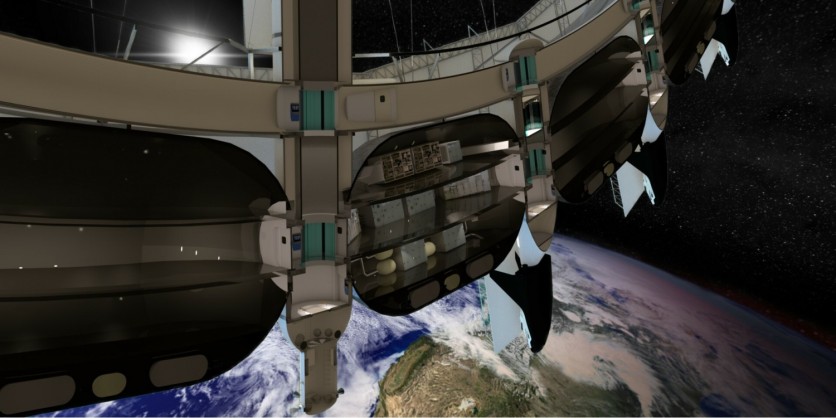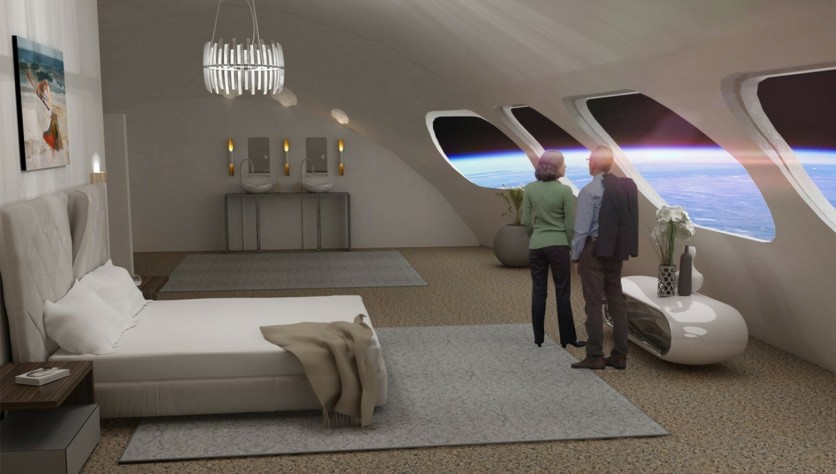In an era wherein space travel is becoming more and more accessible with companies such as Blue Origin and Virgin Galactic, increased efforts in everyday cosmic tourism are expanding. In steps Orbital Assembly Corporation, an aerospace company on the hunt to bridge the contemporary hotel experience into the starways via the likes of not one but two spacebound luxury complexes that boast the most incredible views over Earth.
The first such space hotel under Orbital Assembly Corporation's guise will be called the "Pioneer Station," a supposed 28-max guest floating complex situated in a rotating ring that will attempt to utilize normal Earth gravity - or, at the least, as close to it - inside its total of five pods, which will be consistently moving amidst the station's gyration. The company seeks to have its Pioneer Station up by 2025.

The company's second iteration, aptly titled the "Voyager Station," will boast a far larger capacity of around 400 guests. Voyager will likewise consist of a basketball and trampoline area, several restaurants, and a multitude of varied rooms, pods, and luxury suites. On the aerospace firm's website, potential space-bound attendees can get a taste of what's in store via the myriad of rendered images showcasing Orbital Assembly Corporation's planned future, which it deems will be ready by 2027.
Related Article: NASA CAPSTONE: Microwave Oven-Sized Spacecraft to Provide Massive Artemis Mission Advancement
The project has evolved quite a bit over time. It was first headed by the 2012-founded Gateway Foundation, which had plans of budding the "first steps to colonizing space and other worlds," so says an early 2021 Space.com article referencing Gateway's website. But since that time, much has changed. Gateway's commercial space stations, Voyager and The Gateway, would be reappropriated via its own subdivision, the 2018-founded OAC, which cut ties with Gateway sometime in 2021.
The Gateway station, which would be renamed the Von Braun Station until finally taking on the Pioneer moniker, now acts as the company's proving ground for a much larger ambition in the works. OAC's goal is not merely to devise a budding hotel escape to the stars but a thriving space "business park," wherein both tourism and enterprise can coalesce in zero-g.

Says Orbital Assembly's chief operating officer, Tim Alatoree, in an interview with CNN Travel, "The goal has always been to make it possible for large amounts of people to live, work and thrive in space." As to Pioneer Station, Alatoree is gleeful of the promise in its potential quick build time, citing its much smaller capacity as an "opportunity to have people start to experience space on a larger scale, faster."
The premise, however, has always remained on maintaining the big picture. While traveling into space and even staying there seems literally and figuratively out of this world, it's the next great step in our already-existing space tourism concepts. To Alatorre, the Orbital Assembly's intention is beyond merely shaping such a luxury space-bound pitstop for a weekend, but a chance to visit the future.
"It's not going to be like you're going to a factory or you're going to a research facility," he explains. It should, in fact, be a "sci-fi dream."
ⓒ 2025 TECHTIMES.com All rights reserved. Do not reproduce without permission.




